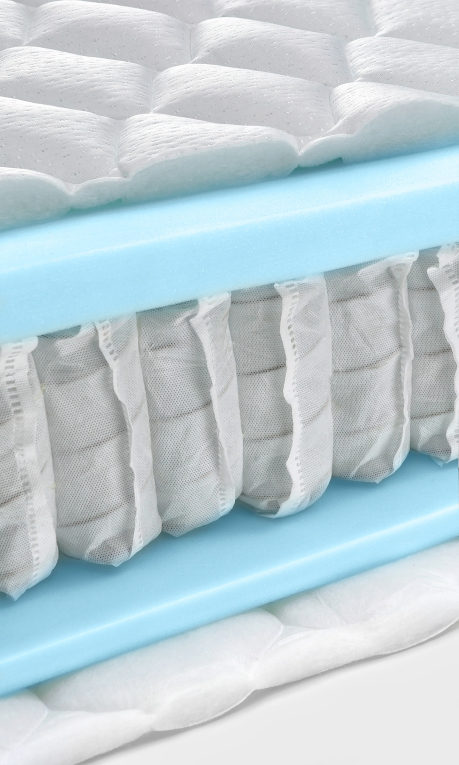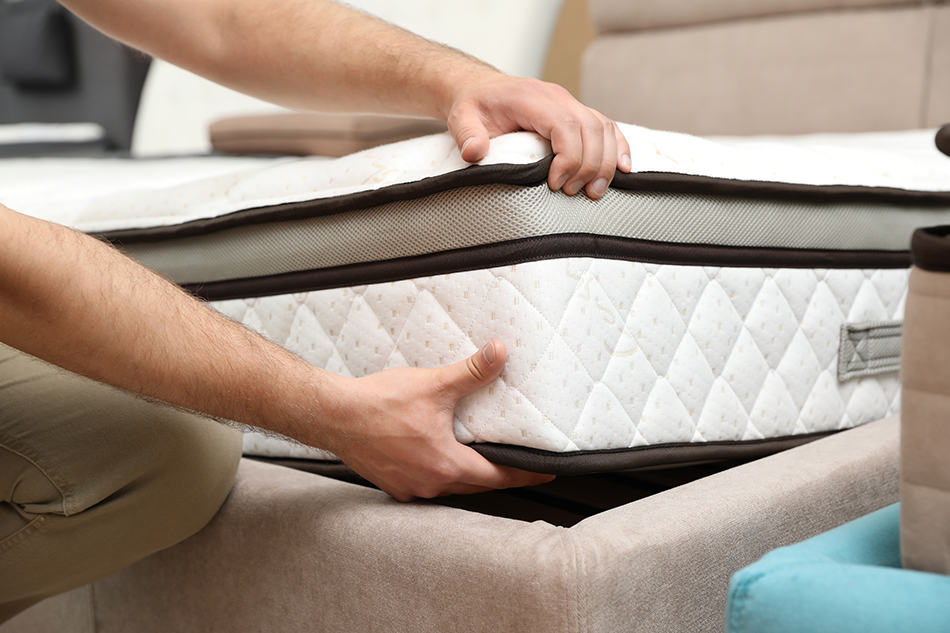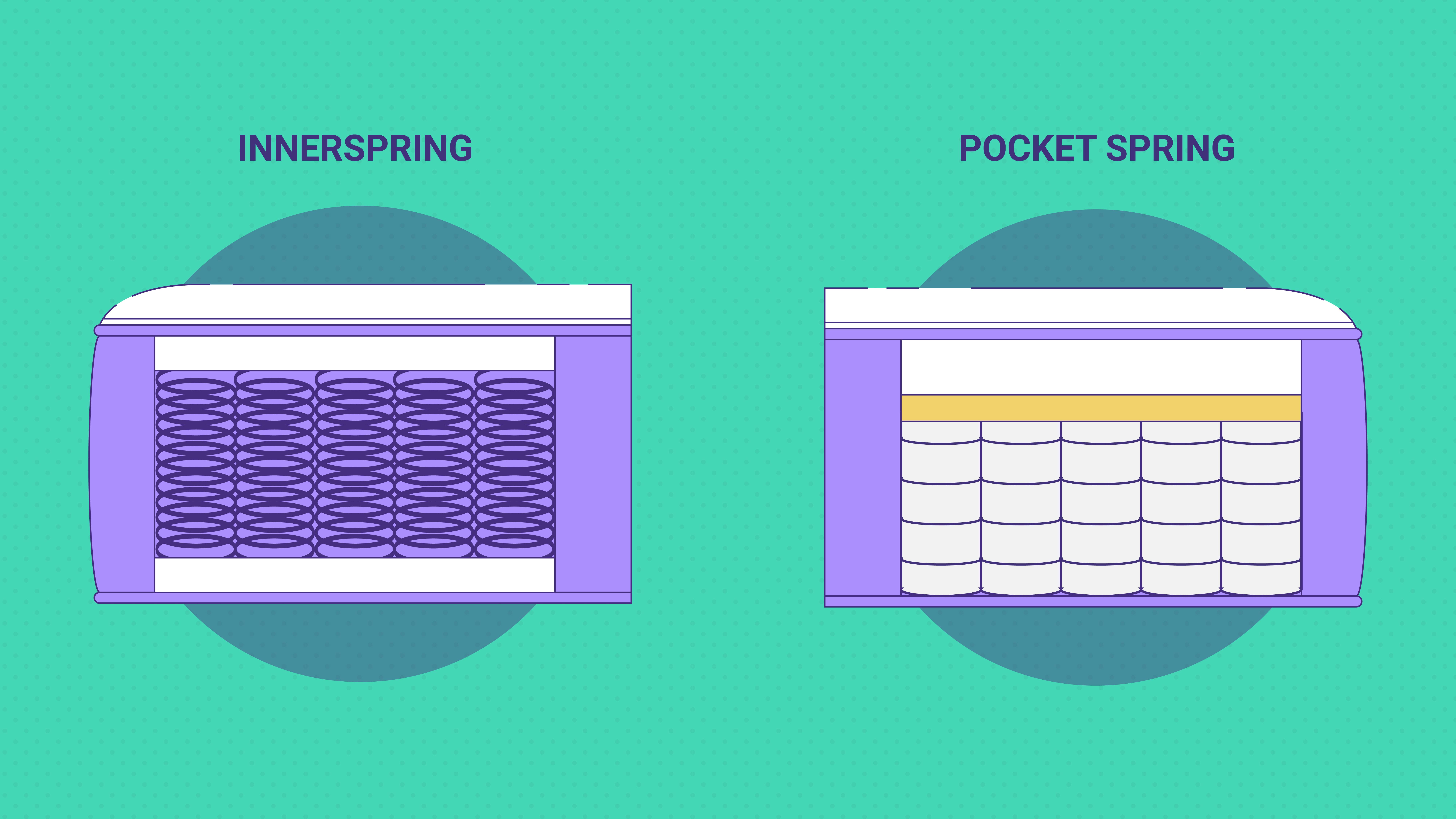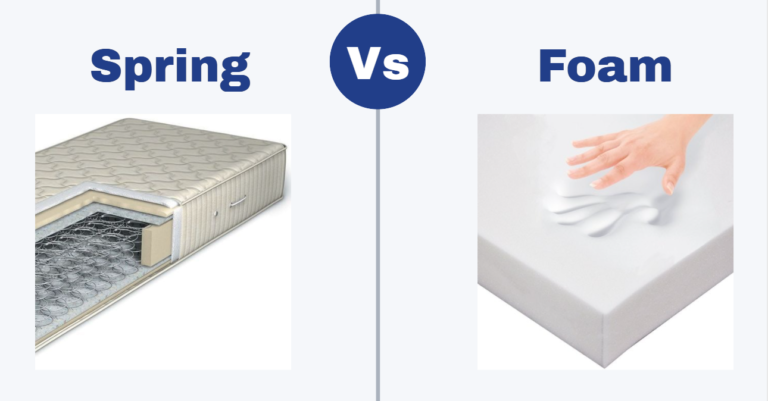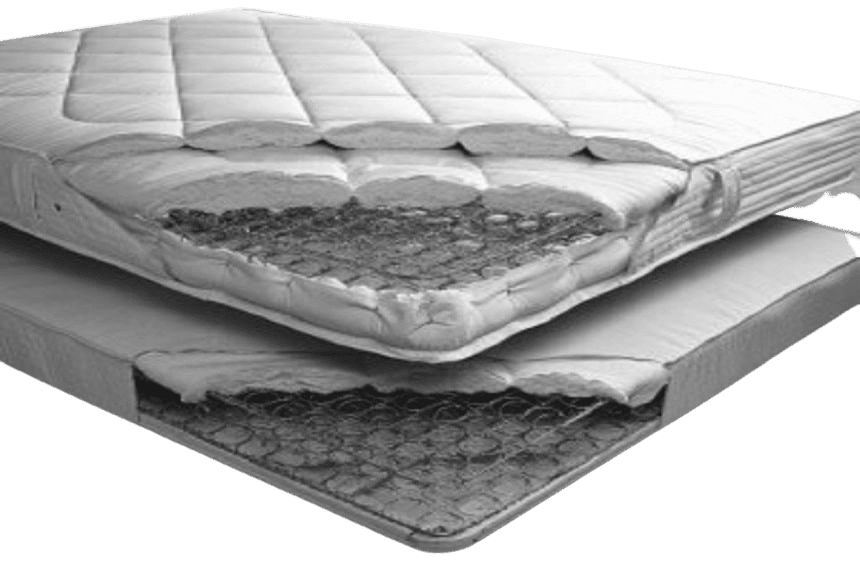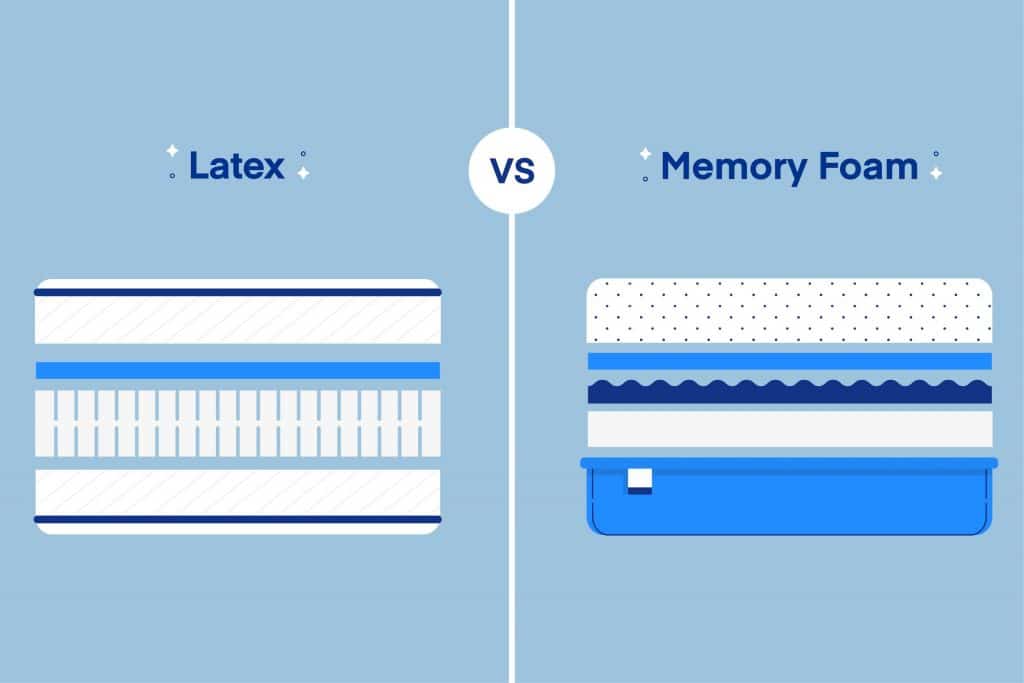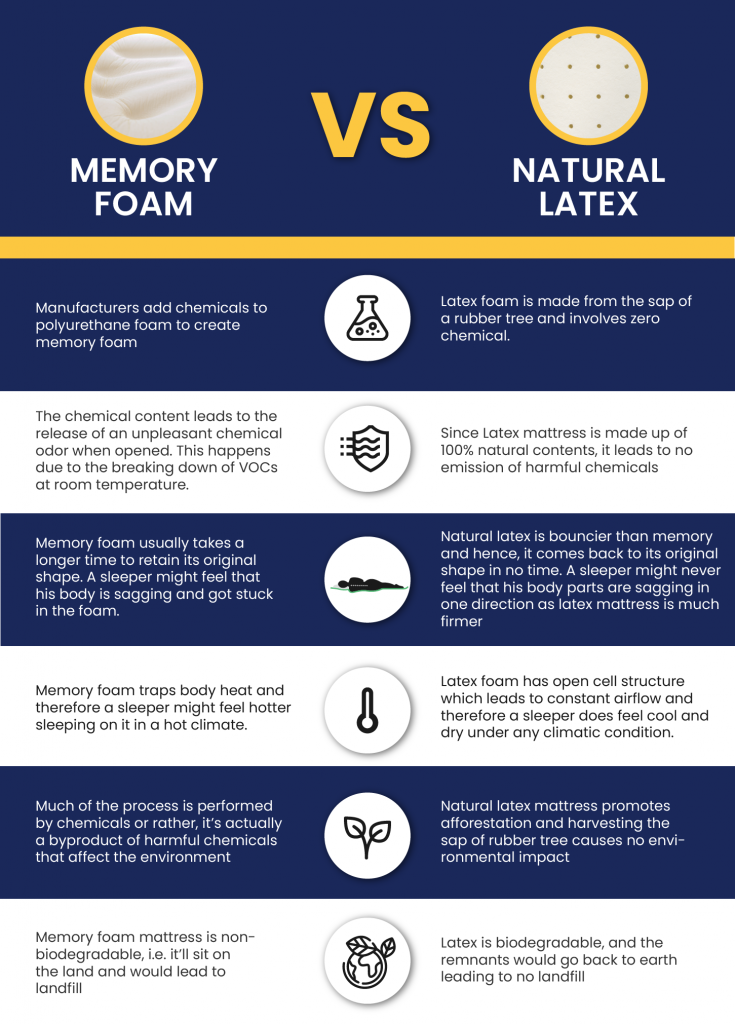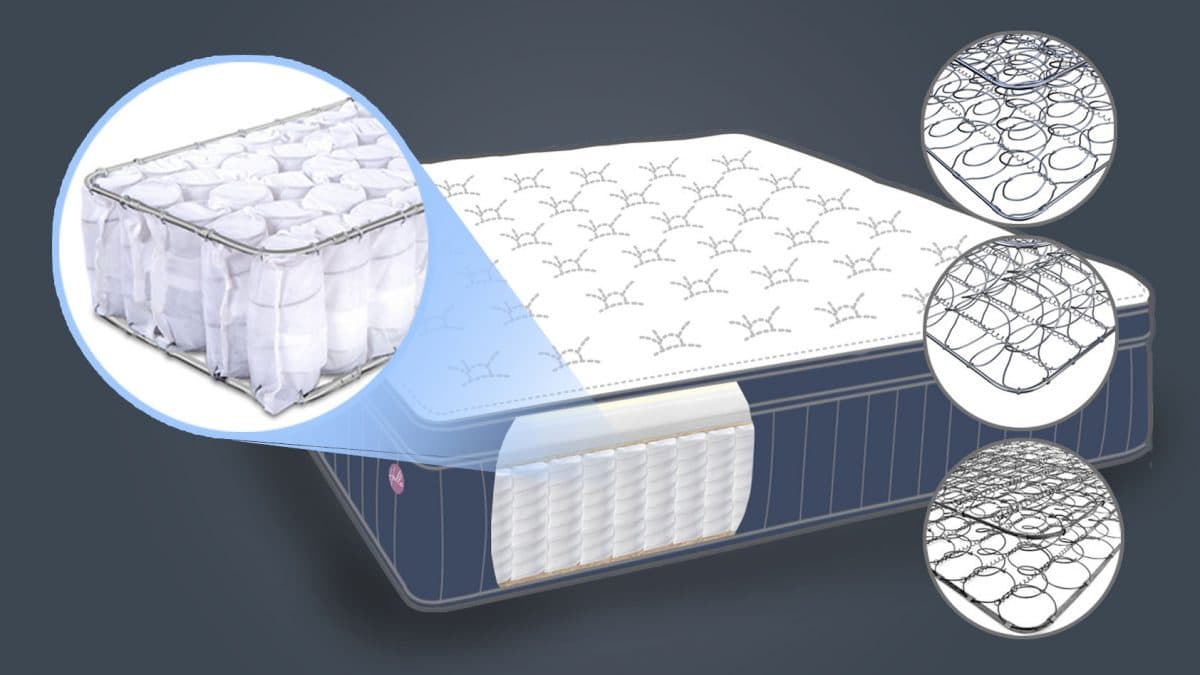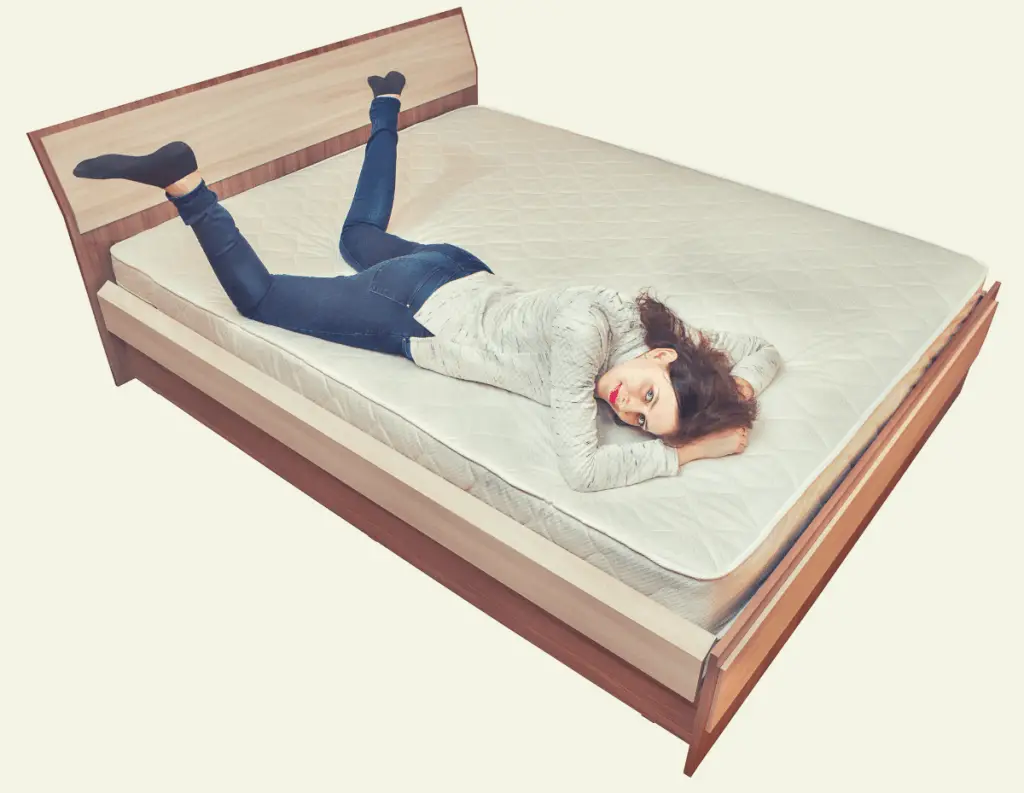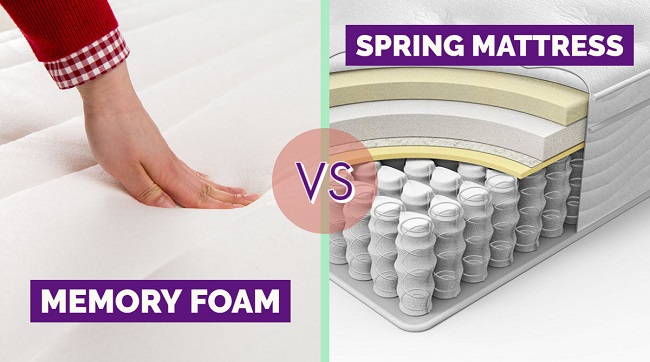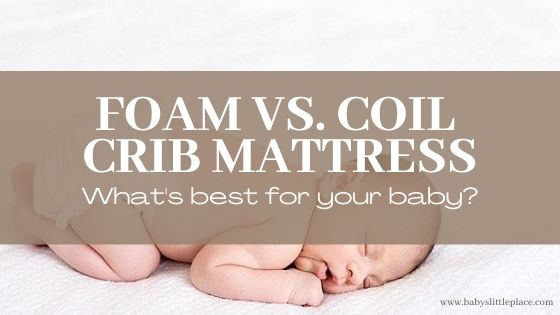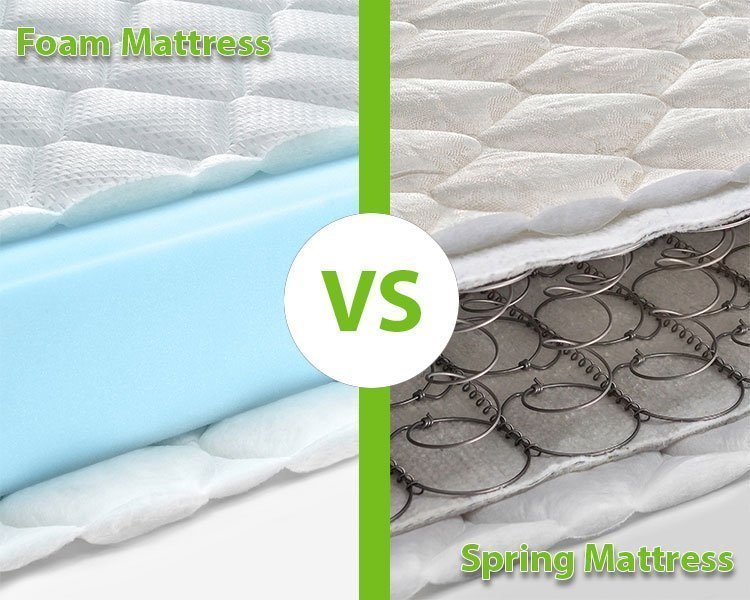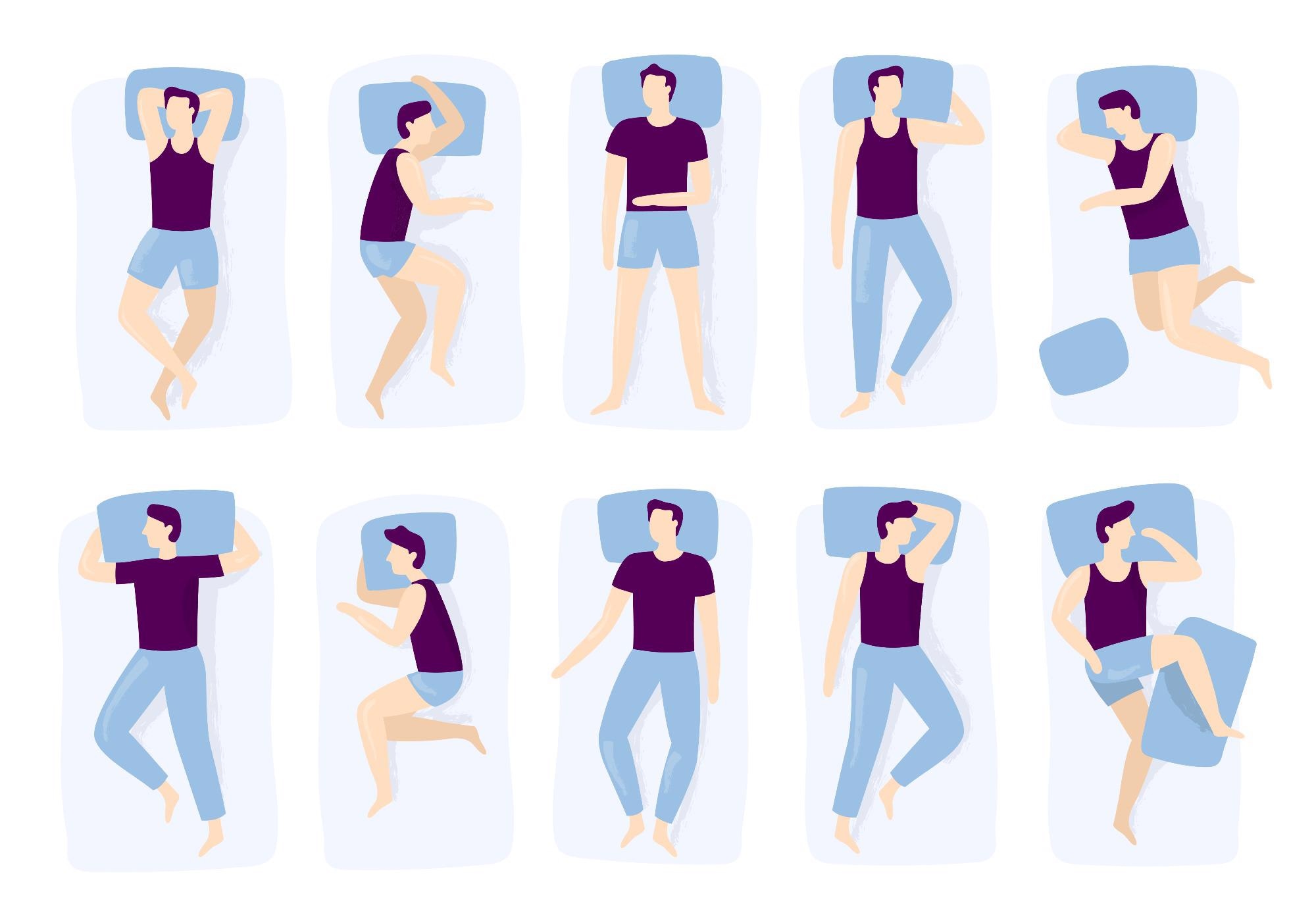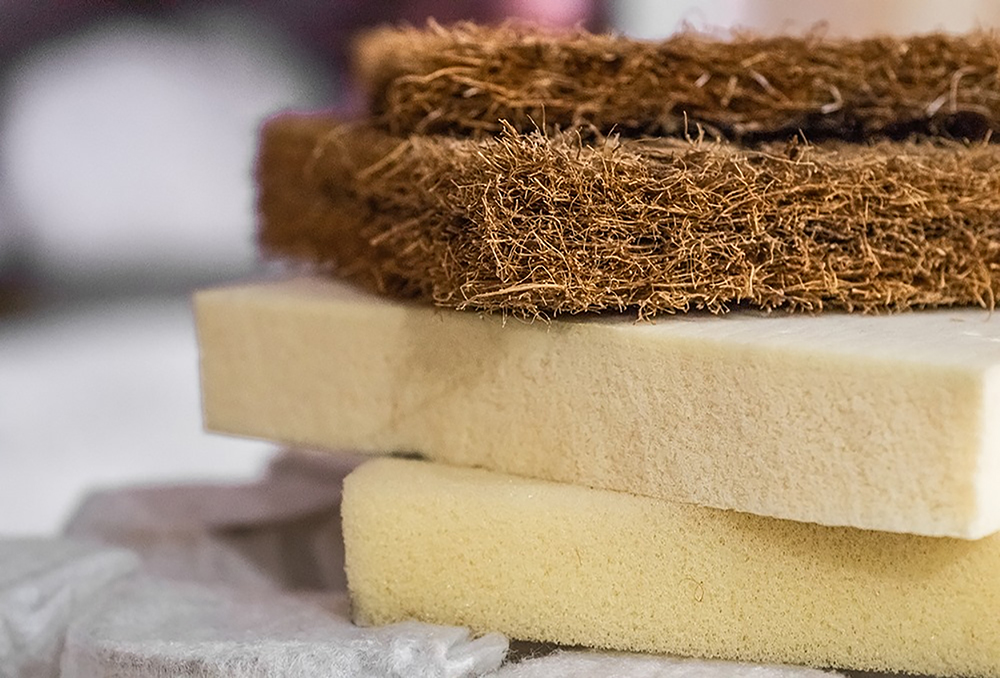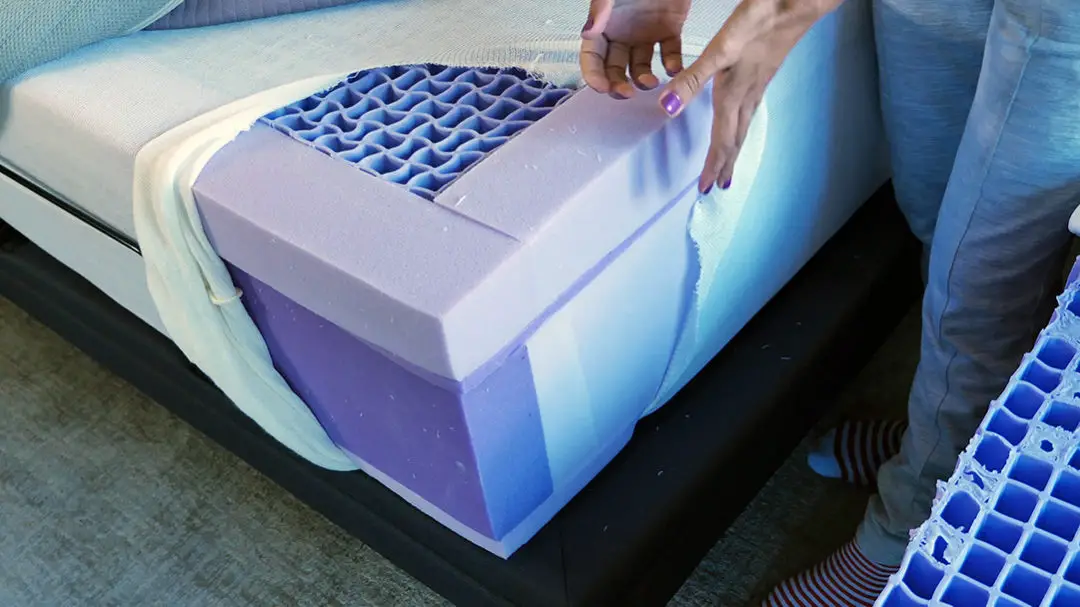Choosing the right mattress can be a daunting task, especially with the wide variety of options available in the market. Two popular types of mattresses that often leave people confused are coil mattresses and foam mattresses. Both offer their own set of benefits and drawbacks, making it difficult to determine which one is better for you. To help you make an informed decision, we have compared these two types of mattresses in detail. Read on to find out which one will provide you with the best sleep experience.Coil Mattress vs Foam Mattress: Which One is Better for You?
Before we dive into the differences between these two types of mattresses, let's take a look at their pros and cons. Coil Mattress Pros: Provides good support, bounces back quickly, affordable. Coil Mattress Cons: May sag over time, can be noisy, less motion isolation. Foam Mattress Pros: Conforms to body shape, provides pressure relief, good motion isolation. Foam Mattress Cons: May retain heat, can be expensive, lacks bounce.Coil vs Foam Mattress: Pros and Cons
One of the main differences between coil mattresses and foam mattresses is the material they are made of. Coil mattresses, also known as innerspring mattresses, are made up of metal coils that provide support and bounce. On the other hand, foam mattresses are made of different types of foam, such as memory foam, latex foam, or polyurethane foam, which conform to the body's shape and provide pressure relief. Another difference is in the support they provide. Coil mattresses are known for their firm support, making them a good choice for those who prefer a more traditional feel. Foam mattresses, on the other hand, provide a more cushioned support, making them a good choice for those who want a softer feel.Coil Mattress vs Memory Foam: What's the Difference?
When it comes to comfort and support, both coil and foam mattresses have their own advantages. Coil mattresses have a bouncy feel, which can be comfortable for some people, especially those who move around a lot in their sleep. However, the level of support provided by a coil mattress may vary depending on the number and type of coils used. Foam mattresses, on the other hand, provide a more even and consistent support, as the foam conforms to the body's shape and distributes weight evenly. This can be beneficial for people with pressure points or back pain. However, some may find foam mattresses too soft and lacking in support.Coil vs Foam Mattress: Comfort and Support Comparison
When it comes to durability and longevity, foam mattresses tend to have an edge over coil mattresses. This is because foam mattresses are made of high-density materials that are less likely to sag or lose their shape over time. On the other hand, coil mattresses may start to sag after a few years of use, especially if they are made with lower-quality coils. However, it is important to note that the durability of a mattress also depends on the quality of materials used and how well it is maintained.Coil Mattress vs Foam Mattress: Durability and Longevity
In terms of price, coil mattresses tend to be more affordable than foam mattresses. This is because the materials used in coil mattresses are less expensive. However, the price of a mattress can also depend on the brand, size, and quality of materials used. Foam mattresses, on the other hand, can be more expensive due to the higher cost of materials. However, they may also provide better value in the long run as they tend to last longer than coil mattresses.Coil vs Foam Mattress: Price and Affordability
One of the biggest differences between coil mattresses and foam mattresses is their motion isolation and noise levels. Coil mattresses tend to have less motion isolation, meaning that movement on one side of the bed can be felt on the other side. This can be a problem for couples, especially if one partner is a restless sleeper. Foam mattresses, on the other hand, have better motion isolation, meaning that movement on one side of the bed is less likely to be felt on the other. They also tend to be quieter than coil mattresses, which can be beneficial for light sleepers.Coil Mattress vs Foam Mattress: Motion Isolation and Noise
One common complaint about foam mattresses is that they tend to retain heat, making them uncomfortable for some people, especially in warmer climates. This is because foam mattresses contour to the body's shape, creating a cradle-like effect that can trap heat. However, many foam mattresses now come with cooling technologies to combat this issue. Coil mattresses, on the other hand, tend to have better breathability as the spaces between the coils allow for air circulation, keeping the mattress cool. However, this can also depend on the type of foam used in a foam mattress, as some foams are more breathable than others.Coil vs Foam Mattress: Heat Retention and Breathability
Both coil and foam mattresses require some level of maintenance and care to ensure their longevity. Coil mattresses may need to be flipped or rotated every few months to prevent sagging and maintain even wear. Foam mattresses, on the other hand, do not need to be flipped but may need to be rotated to prevent uneven wear. Both types of mattresses may also need to be cleaned and aired out regularly to prevent the buildup of dust and allergens.Coil Mattress vs Foam Mattress: Maintenance and Care
Finally, the type of mattress that will suit you best also depends on your preferred sleeping position. Coil mattresses tend to be better for back and stomach sleepers, as they provide a firmer support that keeps the spine aligned. Foam mattresses, on the other hand, can be better for side sleepers as they provide better pressure relief for the shoulders and hips.Coil vs Foam Mattress: Which One is Right for Your Sleeping Position?
The Comfort Factor: A Closer Look at Coil Mattresses vs Foam Mattresses
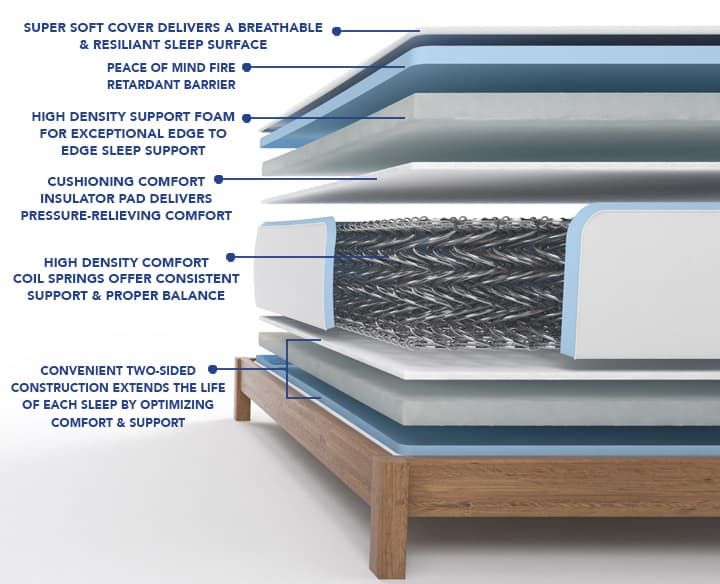
The Importance of a Good Night's Sleep
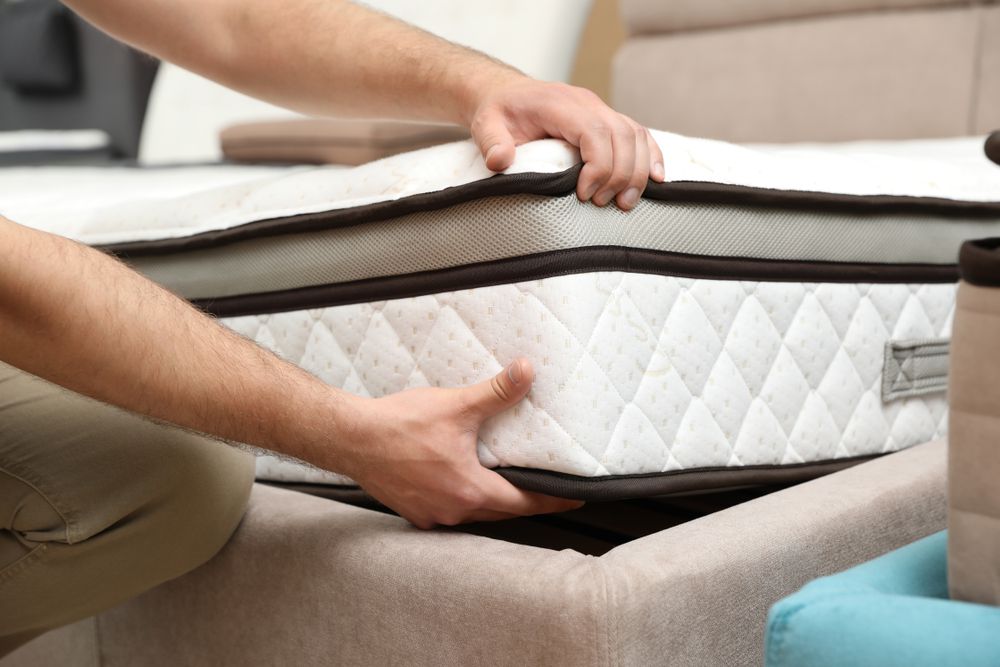 We all know the importance of a good night's sleep for our overall health and well-being. And the key to a good night's sleep? A comfortable and supportive mattress. With so many options on the market, it can be overwhelming to choose the right one for your needs. Two of the most popular mattress types are coil and foam mattresses. Let's take a closer look at these two options and see which one comes out on top in the comfort department.
We all know the importance of a good night's sleep for our overall health and well-being. And the key to a good night's sleep? A comfortable and supportive mattress. With so many options on the market, it can be overwhelming to choose the right one for your needs. Two of the most popular mattress types are coil and foam mattresses. Let's take a closer look at these two options and see which one comes out on top in the comfort department.
The Traditional Choice: Coil Mattresses
 Coil mattresses
have been around for decades and are the most common type of mattress. They are constructed with steel coils or springs that provide support and bounce. The number, shape, and thickness of the coils can vary, giving different levels of firmness and support. Coil mattresses also have a layer of padding on top, which can be made of materials such as cotton, wool, or foam. This layer adds extra cushioning and comfort to the mattress.
One of the main advantages of a coil mattress is its affordability. They tend to be less expensive than foam mattresses, making them a popular choice for those on a budget. Additionally, the coil design allows for better air circulation, keeping the mattress cool and preventing overheating during the night.
However, some people find that coil mattresses lack the necessary support for their body, especially for those with back or joint pain. The coils can also create pressure points, leading to discomfort and restless sleep. Furthermore, they tend to lose their shape and support over time, resulting in a shorter lifespan compared to foam mattresses.
Coil mattresses
have been around for decades and are the most common type of mattress. They are constructed with steel coils or springs that provide support and bounce. The number, shape, and thickness of the coils can vary, giving different levels of firmness and support. Coil mattresses also have a layer of padding on top, which can be made of materials such as cotton, wool, or foam. This layer adds extra cushioning and comfort to the mattress.
One of the main advantages of a coil mattress is its affordability. They tend to be less expensive than foam mattresses, making them a popular choice for those on a budget. Additionally, the coil design allows for better air circulation, keeping the mattress cool and preventing overheating during the night.
However, some people find that coil mattresses lack the necessary support for their body, especially for those with back or joint pain. The coils can also create pressure points, leading to discomfort and restless sleep. Furthermore, they tend to lose their shape and support over time, resulting in a shorter lifespan compared to foam mattresses.
The New Kid on the Block: Foam Mattresses
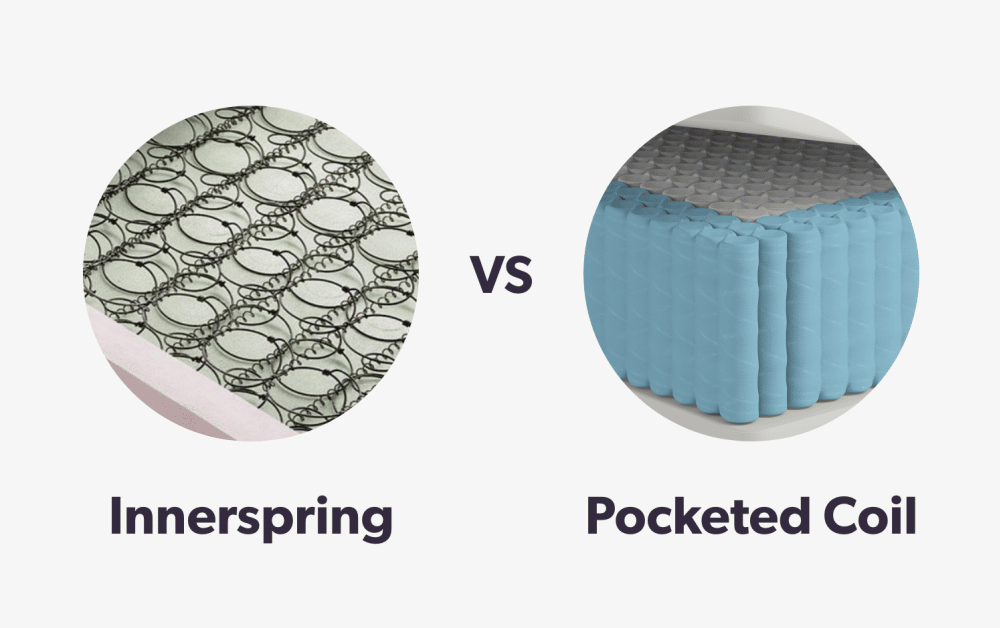 Foam mattresses
, on the other hand, have gained popularity in recent years due to their ability to conform to the body's shape and provide targeted support. They are made from different types of foam, such as memory foam, latex foam, or polyurethane foam. Memory foam, in particular, has become a popular choice as it contours to the body, relieving pressure points and providing a comfortable and supportive sleep experience.
In addition to its exceptional support, foam mattresses also have excellent motion isolation, making them ideal for couples or those who share a bed with a restless sleeper. They are also hypoallergenic and resistant to dust mites, making them a great choice for those with allergies.
However, foam mattresses can be more expensive than coil mattresses, and some people may find them too soft or lacking in bounce. They also tend to retain heat, making them uncomfortable for those who sleep hot.
Foam mattresses
, on the other hand, have gained popularity in recent years due to their ability to conform to the body's shape and provide targeted support. They are made from different types of foam, such as memory foam, latex foam, or polyurethane foam. Memory foam, in particular, has become a popular choice as it contours to the body, relieving pressure points and providing a comfortable and supportive sleep experience.
In addition to its exceptional support, foam mattresses also have excellent motion isolation, making them ideal for couples or those who share a bed with a restless sleeper. They are also hypoallergenic and resistant to dust mites, making them a great choice for those with allergies.
However, foam mattresses can be more expensive than coil mattresses, and some people may find them too soft or lacking in bounce. They also tend to retain heat, making them uncomfortable for those who sleep hot.
The Final Verdict: It's All About Personal Preference
 When it comes to comfort, both coil and foam mattresses have their own unique advantages and disadvantages. It ultimately comes down to personal preference and what works best for your body and sleep habits.
Coil mattresses
may be a better option for those on a budget or those who prefer a traditional and bouncier feel.
Foam mattresses
, on the other hand, may be more suitable for those who want targeted support and minimal motion transfer.
In the end, the key to finding the perfect mattress is to test them out and see which one feels most comfortable for you. With the right mattress, you can say goodbye to restless nights and hello to a well-rested and rejuvenated you.
When it comes to comfort, both coil and foam mattresses have their own unique advantages and disadvantages. It ultimately comes down to personal preference and what works best for your body and sleep habits.
Coil mattresses
may be a better option for those on a budget or those who prefer a traditional and bouncier feel.
Foam mattresses
, on the other hand, may be more suitable for those who want targeted support and minimal motion transfer.
In the end, the key to finding the perfect mattress is to test them out and see which one feels most comfortable for you. With the right mattress, you can say goodbye to restless nights and hello to a well-rested and rejuvenated you.
